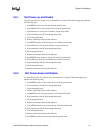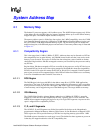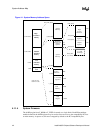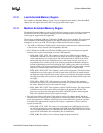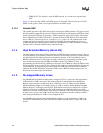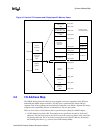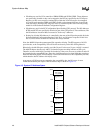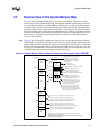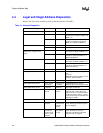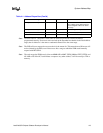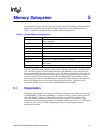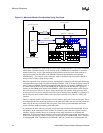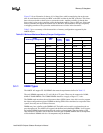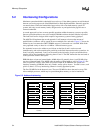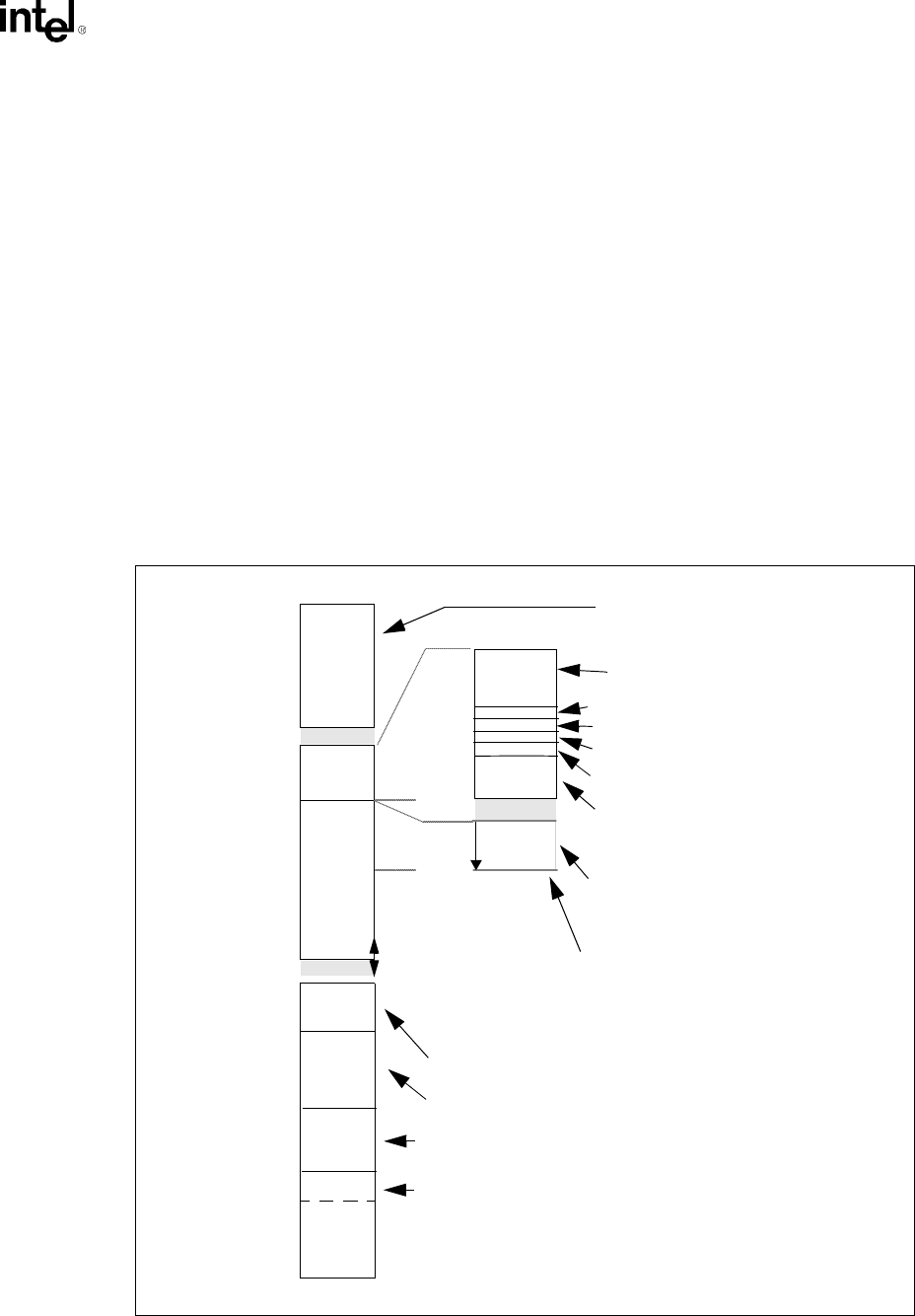
Intel® 460GX Chipset Software Developer’s Manual 4-7
System Address Map
4.3 Devices View of the System Memory Map
Figure 4-1 shows an Expander Bridge device’s view of system memory. The goal is to prevent
invalid accesses at the expander bridge level, since different expander bridge devices are allowed
to access different regions. For example, PXBs are allowed to access other logical PCI segments
and GXBs are not. The SAC does not perform special checking to prevent this, and therefore the
expander bridges must be set up by firmware accordingly. An exception to this rule can be made if
the request is being routed to the system bus rather than directly to memory. For instance, accesses
above the Top of Memory are not blocked at the PXB level, but instead cause a BINIT# in the SAC
because they are guaranteed to go through the SAC’s decode logic since the PXB routes these
accesses to the system bus
Note: Figure 4-1 shows that parallel segment peer-to-peer accesses are only supported when initiated by
a PXB (GXBs are only allowed to initiate accesses directed to system memory) and directed to one
of the nx32M logical PCI segments (this segment can be anywhere except below the compatibility
PCI bus). Parallel segment peer accesses are not permitted anywhere below 1 MB, not even to the
VGA region. This means that if VGA is relocated below a GXB, a server management card on one
of the PCI buses in the system can no longer access the VGA range.
Figure 4-4. System Memory Address Space as Viewed from an Expander Bridge (PXB/GXB)
0
A_0000
C_0000
F_0000
10_0000
FEC0_0000
FF00_0000
FE00_0000
Chipset
System
32
Firmware,
Processor &
Chipset
Memory
Specific
System
1_0000_0000
Memory
FFF_FFFF_FFFF
MB
Specific
FFFF_FFFF
PCI Gaps
n x 32M
DOS
System
C, D, and E
Segments
VGA
Memory
Region
FE00_0000 -
(n x 32M)
High
System Firmware
PXB/GXB allow to interrupt delivery area
PXBs may support peer-to-peer; accesses
if enabled as memory GAP (directed to a logical PCI segment),
PXB must ignore
GXB must BINIT# after GART
PXB allows (only recommended to use
to the PXB’s own PCI bus must be ignored;
accesses to other PCI buses can be directed
to the system bus so the SAC forwards
them to the targeted peer bus
GXBs can not allow peer-to-peer; accesses
to the GXB’s own PCI bus must be ignored
(allows AGP card to “talk to itself” in that)
all PXB’s must ignore and all GXBs must BINIT# after GART
if enabled as memory GAP (directed to a logical PCI segment),
all PXB’s must ignore and all GXBs must ignore in the PCI stream
if enabled as memory GAP (directed to the compatibility PCI bus),
all PXB’s must ignore and all GXBs must BINIT# after GART
but BINIT# after GART (allows AGP card to “talk to itself” in that region)
after the GART must cause a BINIT#
region); accesses to any PCI bus that are found
PXB accesses above the Top of Memory
are routed as if to peer and therefore
go through the SAC decode and cause
Top of Memory
after the GART
a BINIT#; GXB must cause a BINIT#
All remaining regions are mapped to main memory and are always forwarded inbound
The term “ignore” from a PCI perspective means do not assert DEVSEL#;
Notes:
GXB must BINIT# after GART
PXB must ignore; GXB must BINIT# after GART
PXB defaults to memory so SAC must trap;
GXB must BINIT# after GART
4G-16M to 4G-17M
4G-17M to 4G-18M
4G-18M to 4G-19M
4G-19M to 4G-20M
instead allow request to master abort
using the “memory” route encoding
PXB must ignore; GXB must BINIT# after GART
from compatibility bus for server management)
if enabled as a memory GAP (directed to the compatibility PCI bus),
all PXB’s must ignore and all GXB’s must BINIT# after GART
512K-640K
Firmware



